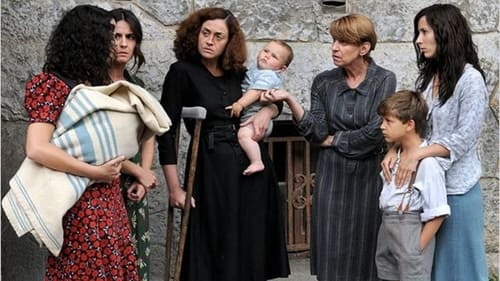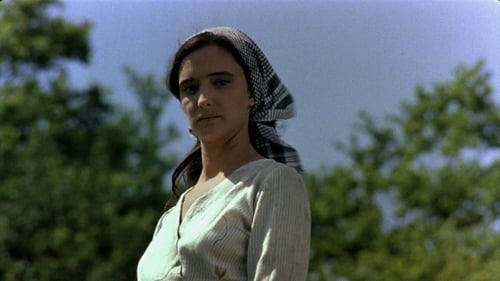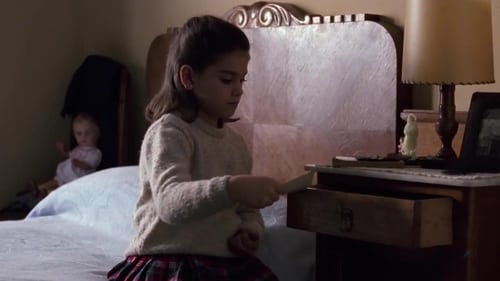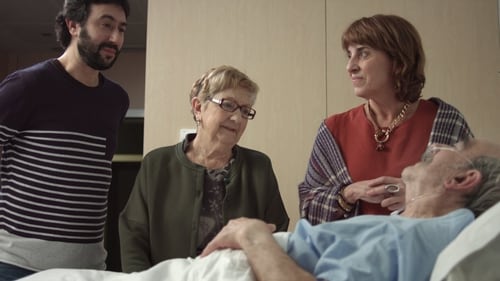Klara Badiola
Nascimento : 1954-05-03, Donostia / San Sebastián, Spain
História
Licenciada en Filología Románica por la Universidad de Deusto. Inició su andadura en el campo del arte dramático simultaneando docencia (tras licenciarse impartió clases de Lengua y Literatura) con interpretación en el grupo de teatro en euskera Xaribari. Estas representaciones le llevaron a realizar un programa infantil en Radio Popular. Trabajando en este programa se presentó al casting de La fuga de Segovia (1981) de Imanol Uribe, y obtuvo un papel. El éxito de la película le impulsó a abandonar la docencia para dedicarse de lleno a la interpretación. Ingresó entonces en Antzerti, la escuela de Arte Dramático del Gobierno Vasco. Desde entonces, ha participado en innumerables películas y aparecido en numerosas series y películas realizadas para televisión.

Mother
When her grandfather unexpectedly dies, Ane is forced to leave the big city and return to her hometown. Her homecoming leads to a tense reencounter with the women in her family that takes a bizarre turn when she becomes suspicious of the funeral parlour's actions.

Mother
Nora is 30 years old; she lives with her Argentinian grandfather Nicolás and regularly takes care of her friend Meri's children. She writes the horoscope for the town newspaper, although her dream is to be a travel writer. When her grandfather dies, she inherits an old Dyane 6. Despite being a terrible driver, Nora will set out aimlessly on a road trip along the Basque coast so that her grandfather's ashes may finally rest beside those of her grandmother. The road will soon teach her that she's not a born traveller and that her dream had nothing to do with roving, but was only an excuse for the chance to be free, to grow, to close wounds and, for the first time, to find her own happiness.

Ane
Um jovem casal desvenda segredos sombrios de seus ancestrais ao escrever a história em comum das famílias de ambos. E um dos dois precisa fazer uma confissão dolorosa.

Isabel
The story of a family; the story of a conflict. The rural and the urban, the past and the present, parents and their offspring: opposing ways of life struggle against one another whilst, in eloquent silence, the grandmother ('amama') watches her family’s destiny unfold.

At the death of his father, Paulo, the youngest son, will have to be in charge of his mentally handicapped brother Daniel. Based on the novel by Bernardo Atxaga.

Emelina
Victoria is a republican widow who enters in the prison of Saturrarán (Vizcaya), place where an experiment of the Franco regime takes part: the separation of children from their mothers to give them up for adoption to families close to the regime, in order to break the chains of communism.

Mugaldekoak is set in the early 40s, when, on this side of the border, the wounds of the Civil War were still open and, on the other, they were living under occupation by the German Army. The tale revolves around the Comète Network, an initiative developed during World War II on the border with Navarre: the clandestine evacuation of British pilots brought down in enemy territory.

Isabel

Sofía
After the death of the last survivor of a multiple murder, which remained in a coma, a journalist is asked to make an infographic about the case. Her personal involvement with the event will give clues to unexpected connections that shed new research data.

La Buena Voz (aka The Good Voice) explores the relationship that develops between a father and a gay son he never knew existed -- two men suddenly and unexpectedly thrust into each other's lives. Pepe, a slightly listless, fifty-something taxi driver with a heart condition, suddenly learns that he fathered a child, Jordi, from a quiet affair with his wife's girlfriend. Jordi, now HIV-positive, enters Pepe's world and recolors the elder's perspective and outlook on life, with his take-no-prisoners zeal for living and a restless, inquisitive spirit.

Yvonne

Leonor
Marta must travel to Colombia to take charge of the corpse of his brother Juan, who has been murdered. Once there, she gets involved in a mysterious plot.

Madalen (als Clara Badiola)
Um filme ambientado na região basca, começando na terceira e última guerra carlista (1872-1876), desde 1875 e terminando durante a guerra civil espanhola (1936-1939) de 1936. O filme retrata como um único ato de covardia molda a vida das próximas três gerações de duas famílias e alimenta a intensa rivalidade que durará os próximos sessenta e um (61) anos.

Mother
Itziar is eight years old and lives in two very different worlds. On the one hand, the world of her disappointed Basque nationalist parents and, on the other, the religious school, which gives the girl a repressive and retrograde education. However, there is another kind of world, much nicer to Itziar, formed by the street and her friends.

Sor Inés
After a robbery at a bingo hall, the girlfriend of one of the robbers escaped with the help of another woman tries to recover the loot from the raid. The problem is that some cops also want to do with the loot, to finance political assassinations.

Enfermera
Jim is the drummer for the great black musician Billy Swann. With him, he plays in a club called San Sebastián, owned by his friend Floro, every summer.

It's 8 AM in a summer morning from the 70's. Jon, an ETA member, is being chased by the police in the Old Town of San Sebastian. While he runs, he revises his whole life.

Juana de Anjou
King Carlos II of Spain (r. 1665-1700) once sent his brother Luis to lead a military expedition into Albania and conquer that land for the Spaniards. Since Albania was a part of the dowry of Luis' wife, it seemed like a reasonable idea at the time. While that expedition and its final battle is the subject of this historical film, the scale involved can hardly do justice to the concept. The protagonists talk incessantly, and by the time they get down to the final grand battle, it turns out to be a skirmish between several dozen men.

Maruja
In the summer of 1977, a political prisoner, living in exile, recounts the circumstances of his escape to a journalist: in April 76, a group of ETA members planned to escape from prison, but the project fails when, due to a tip-off, the guards discover the tunnel they are digging. The inmates, far from being discouraged, start a second tunnel.

Clara






